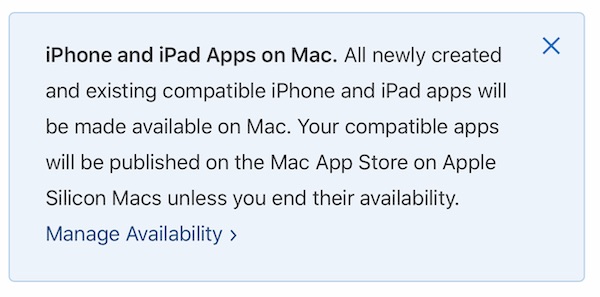
Apple today shared a video with more details about the availability of iPhone and iPad apps on future Macs with custom Apple processors.
Macs with custom Apple processors will share the same Arm architecture as iPhones and iPads, meaning that they will be able to run many iOS and iPadOS apps without any modifications or recompilation. Like traditional Mac apps, these iPhone and iPad apps will be distributed through the Mac App Store, with in-app purchase options carrying over.
A notice in Apple's developer portal says that all new and existing compatible iPhone and iPad apps will be made available in the Mac App Store on Macs with Apple silicon, unless developers uncheck the "iOS App on Mac" box in App Store Connect. There is no obligation for developers to extend their iPhone and iPad apps to the Mac.

Following years of rumors, Apple confirmed its plans to switch to custom processors for Macs during its WWDC keynote this week, promising industry-leading performance per watt. Apple said it plans to ship the first Mac with its own silicon by the end of the year and complete the transition in about two years.
Apple said that it will continue to support and release new versions of macOS for Intel-based Macs for years to come, and it also confirmed that it still has some new Intel-based Macs in development in the interim.
Article Link: iPhone and iPad Apps Coming to Macs With Apple Silicon, Developers Can Manage Availability in App Store Connect
Last edited:

